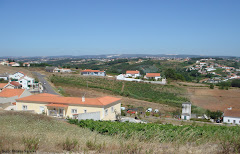Thematic Group of AESOP, 11th meeting
Quando:
2nd & 3rd of May
Onde:
University of Aveiro - Department of Social, Political and Territorial Sciences
- Senate Room / Sala do Senado
Program (programa resumido)
Thursday, the 2nd of May:
14.30 h 1st set of papers
- Incorporating Informal Patterns: New Computational Approaches aimed at Integration of Socio-Spatial and Temporal Aspects of Self Organisation in Mumbai, within Future Co-ordinated Planning Strategies
Ulysses Sengupta, Eric Cheung
- Empirical Indicators for Self-Organisation
Jenni Partanen
- Intelligent cities and intelligent plans: how to foster self-organisation?
Jorge Batista e Silva, José Antunes Ferreira
16.30 h 2nd set of papers
- Co-housing as self-organisation in spatial development: mapping the trajectories of becoming of four Danish co-housing initiatives
Beitske Boonstra
- Cohousing, self-organization in Dutch urban planning practice?
Ward Rauws, Gert de Roo
- The added value of city civic movements in local spatial planning policies: Discussing the case of Aveiro, Portugal
José Carlos Mota
- Towards a culture of urban improvisation – reconstructions of the interplay of private and public initiatives in spatial transformation processes
Oswald Devisch, Oscar Rommens, Joris Van Reusel
Friday, the 3rd of May:
09.00 h 3rd set of papers
- Networks, Markets and Hierarchies: how different governance modes organize urban development
Sara Levy, Karel Martens, Rob van der Heijden
- On emergence and power of strategies: exploring the relations between strategic planning and urban development in Switzerland
Matthias Loepfe, Christina Zweifel, Lineo Devechi
- Planning for Urban Panarchy or Panarchy in Urban Planning?
Helena Farrall, Lia Vasconcelos
11.00 h Keynote
Keynote speaker prof. Francis Heylighen
13.30 h 4th set of presentations
- Applying principles from Complex Adaptive Systems theory towards urban planning strategies: A test case that replaces the design of urban objects with the choreography of urban processes.
Sharon Ackerman
- Spatial planning systems: emergence and co-evolution involving illegal settlers, institutional, planning and spatial design
Paulo Silva
- Just a little patience: an agent-based model of the effect of a planning institution on residential patterns
Sara Levy, Karel Martens, Rob van der Heijden
- Urban Design as a multi-actors involved incremental process: a complex theories (self-organisation) perspective
Kyunghyun Baek
Ver mais:
http://planeamentoregionaleurbano.blogs.sapo.pt/19141.html
2 de maio de 2013
Subscrever:
Enviar feedback (Atom)














Sem comentários:
Enviar um comentário